
The post-PC era already is over
That was fast, if it ever was. Don't blink or the so-called PC era will pass you by. For years, I've called it the cloud-connected device era because of the deeper meaning: Context. But more appropriately, the new epoch is contextual computing, which really extends a transition underway since the World Wide Web opened to the masses about 20 years ago. During the two earlier computing eras, mainframes and PCs, location defined the user. During the contextual computing era, the user defines location. If you listen to analysts obsessed with selling services to enterprises or companies like Apple, post-PC is all about devices. It's anything but.
Context is everything today. I started writing about the concept circa 2004, borrowing from my boss of the day -- Michael Gartenberg. The concept is simple: People are satisfied with what they've got on hand. In context of the airport, a hand-held game console is good enough, while at home the person prefers Xbox and big-screen PC. But because of the cloud connected to an increasing number of mobile devices, context is a much bigger, broader and badder technology trend.

Skype in the workspace caters to small business
Many people were aghast when Microsoft forked over a hefty $8.5 billion in May of 2011 to purchase Skype. The software giant took awhile to get going with its new toy, but now we are starting to see the results. Microsoft announced a brand new platform set to improve communications for small business.
Skype in the workspace connects these companies to customers, partners and suppliers all around the world. The best part may be the price -- "It's a free-to-use online platform for small businesses and entrepreneurs" states Skype's Ural Cebeci. So far, so good.
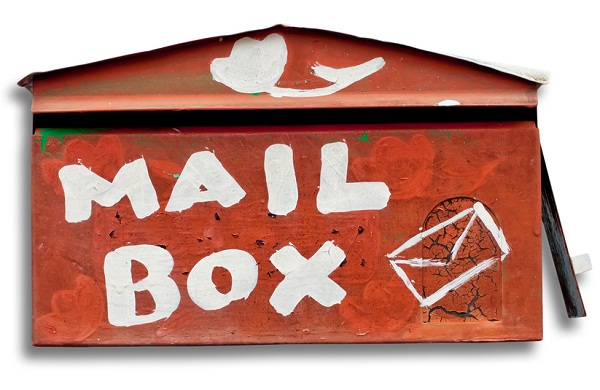
Claim your @icloud.com address
Tonight, my wife received a routine email from Apple. Hey, I didn't get one. But since I declared independence from Apple in July, I really don't care. But you might.
Apple is in process of migrating existing email addresses from @mac.com and @me.com, all of which reflect different iterations of cloud services. I've had mac.com since 2000, or thereabouts. Then four years ago, Apple moved everyone to MobileMe, adding a second domain. Now there's a third supporting iCloud, which debuted about a year ago. This means some Apple users will soon have three different email addresses -- and all of them functional. Confused yet?

Play live music with friends online in Chrome
The only thing that ever stood in the way of my becoming a major international singer/songwriter was my inability to sing. Or write songs. I took guitar and piano lessons as a kid, and am pretty handy at Rock Band, but I’m not a great musician, so I never really get invited to jam with more musically-minded friends.
However, that might change, if I can persuade some of them to give Google’s latest interactive Chrome experiment a try.

Skype Me! Microsoft retires Messenger
Microsoft CEO Steve Ballmer rarely writes a check this big: $8.5 billion -- that's what he paid for Skype in May 2011. So surely, he will get some value for his money. The communications client is this year's rock star, popping up in more new Microsoft products than American-made cars in Big B's garage. One more triumph remains. Months after removing "Windows Live" from Messenger's name, Microsoft will kill the product, replacing it with Skype. Please, let's pause for a silent moment of respect. Yes, you can shed a tear. I've got a hanky if you need one.
"We will retire Messenger in all countries worldwide in the first quarter of 2013 -- with the exception of mainland China where Messenger will continue to be available", Tony Bates, head of Microsoft's Skype division, says. Cue the violins. Surely Skype for Windows 8, but no Messenger in sight, foreshadowed something. The timing makes sense, following Windows 8's launch and coming around when Microsoft makes Office 2013 available to everyone. The messaging software is essential to both, as well as Windows Phone 8.
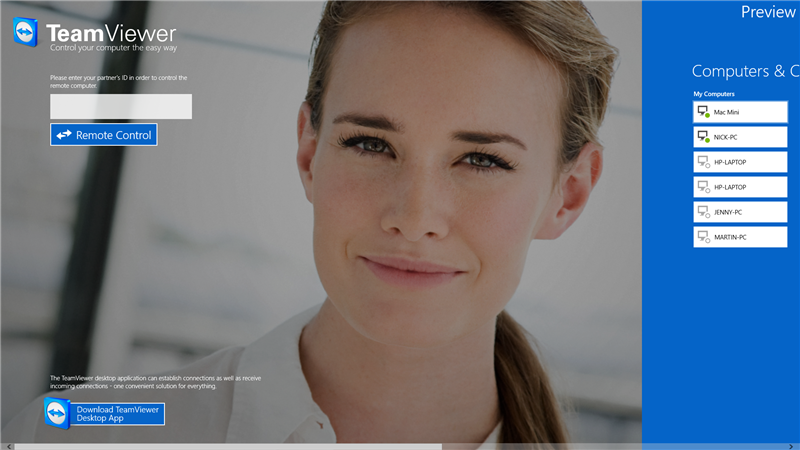
TeamViewer 8 Beta supports newest OS X and Windows releases
German remote-support developer TeamViewer GmbH has publicly released the first beta of TeamViewer 8, its cross-platform, free-for-personal use remote support and control tool.
Version 8, which is currently only available for Windows and Mac, debuts alongside TeamViewer Touch for Windows 8, a dedicated full-screen app for Windows 8 users wishing to connect to other machines, while the new desktop beta comes with support for multi-touch gestures, Mac Retina displays and the ability to record both sound and video during a remote session.
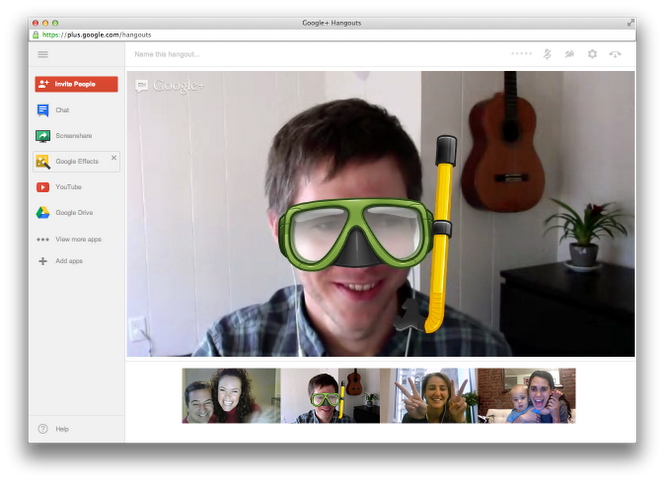
Google Hangouts redesign is about you
If you ever wondered why Microsoft spent $8.5 billion to buy Skype and now tightly integrates the service into new software, Google+ Hangouts is one reason. The search giant has gone far making video group chatting easy, as well broadcasting live streams and posting them to YouTube. Today, Google improves Hangouts, bringing the overall feel in line with other, recent Plus changes. Most importantly, there's more white space, less clutter and clearer notifications. Say, we should Hangout and try it out.
Amit Fulay, Google product manager, explains: "The most important part of a hangout is the people in the room", which aptly describes the redesign's major benefit. Hangouts now consolidates "important items -- like invites, chat, and apps -- into a sidebar that's there when you need it, and tucked away when you don't".

Google revamps compose in Gmail -- now opens in a new window
I love Gmail, but one thing frustrates me. I’m composing a message or a reply, and suddenly I need to check some details or copy some text from another email. That means saving the draft I’m currently working on, going into the other email I want, then returning to my new message and continuing from there.
It’s not a major problem, but it is a frustrating niggle, and I’m clearly not alone in thinking so, as Google is in the process of rolling out a change to Gmail that addresses this very issue.

Skype 6.0 for Mac and Windows sports spiffy UI, better Facebook integration
Less than 48 hours ahead of its launch of Windows 8, Microsoft has unveiled Skype for Desktop 6.0 for Windows and Skype for Mac 6.0, a major new release of its popular cross-platform chat tool. Skype for Desktop 6.0 focuses on improving integration with existing Microsoft Messenger and Facebook services.
New features include the ability to log in using either Microsoft or Facebook accounts before linking all three together. One reason for doing so is that Skype now supports IM conversations with Messenger contacts as well as other Skype and Facebook friends.

What happens when there is a cloud service outage?
Whether some might people like it or not, we live in the cloud era and there the key role is played by services. But what happens when there's an outage? Yesterday I tried to log into Flipboard, but unlike what would usually happen, the message "service is currently down" greeted me.
It wasn't a scheduled maintenance. Flipboard announced via Google+ that the service was down and it "only" took roughly five hours to get it back up. So what happened? According to Data Center Knowledge and Wired, when Amazon Cloud went down so did Heroku, Flipboard, Foursquare, Reddit "and others", with problems reported to its North Virginia-based servers. But the cloud is supposed to be the future, and it doesn't include pulling the plug and sending people off: "Go to sleep, I'm incapable of anything now!"

Google Apps vs Office 365: Which does cloud email better? [review]
Office 365 happens to be a product I think has a lot of potential. To be fair, it's Microsoft's second try at dedicated cloud-based email. Redmond first went toe to toe with Google Apps back in the days of BPOS (Business Productivity Online Suite), but they're distant cousins at best. With a few years' separation, Office 365 is Microsoft's answer to the growing threat Google Apps poses to Exchange.
The way I see it, Microsoft's torn internally. They are clearly still developing a wide range of Server and Exchange revisions on the usual upgrade cycle, but then signal a clear concession to the cloud by killing off Windows Small Business Server. While mixed intentions obviously represent the reality that they are innately a traditional software company, they realize that business is moving to the cloud whether they hold the leash or not.
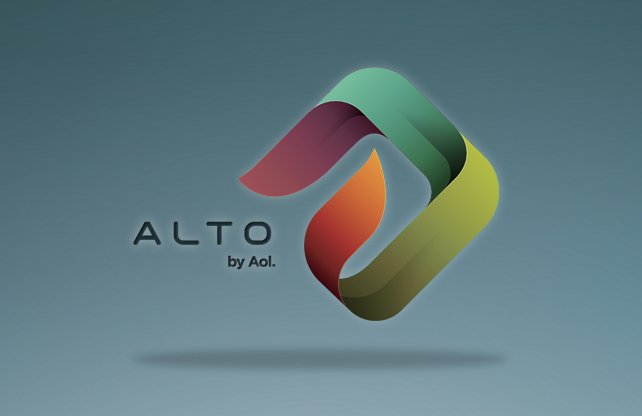
Alto, AOL's cloud-based mail service, launches in limited preview
Changing your email address can be a major pain. You’ve got to tell everyone about it, move your emails from the old account to the new one and so on. I know people who’ve been using Hotmail for the better part of a decade, despite loathing it, just because they don’t want the perceived hassle of switching to another service (or even upgrading to Outlook.com).
AOL’s new cloud-based email tool, Alto, is designed to avoid this problem by working alongside, or rather on top of, the main webmail services, rather than replacing them. You don’t need to sign up for a new email address, you just log in with your existing AOL, Gmail, Yahoo, or iCloud details. Once you’re in, Alto will help manage your inbox and cut back on clutter.
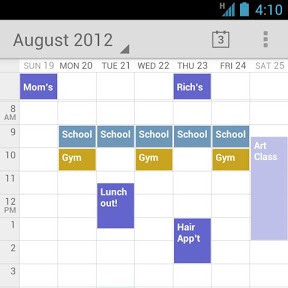
Google Calendar releases as separate Android app -- get it NOW!
Android users running Ice Cream Sandwich and Jelly Bean can now take advantage of a new standalone version of Google Calendar. The move brings the product/service more in line with Gmail, Google Play and others that have been separate apps for some time now, and the split sees the introduction of some interesting new options that could well be enough to persuade users away from other calendar apps.
The calendar app previously was limited to a number of devices, notably Nexus, but now it is available to anyone running the right version of Google mobile operating system. While the standalone app is nothing groundbreaking, there are a few noteworthy tweaks, starting with the fact that there is now a snooze function for those occasions when you are busy with something else but still want to be reminded of an upcoming appointment.

Box touts bigger, better, all-new experience
Cloud storage service Box is changing with a fresh, new look and introduction of document editing and connections. Editing capabilities follow a recent trend, as Google and Microsoft add similar functionality to their online "Drive" services.
The cloud storage service has reached 14 million users and 140,000 businesses, and with the latest update promises a completely new experience with emphasis on collaborations and content.
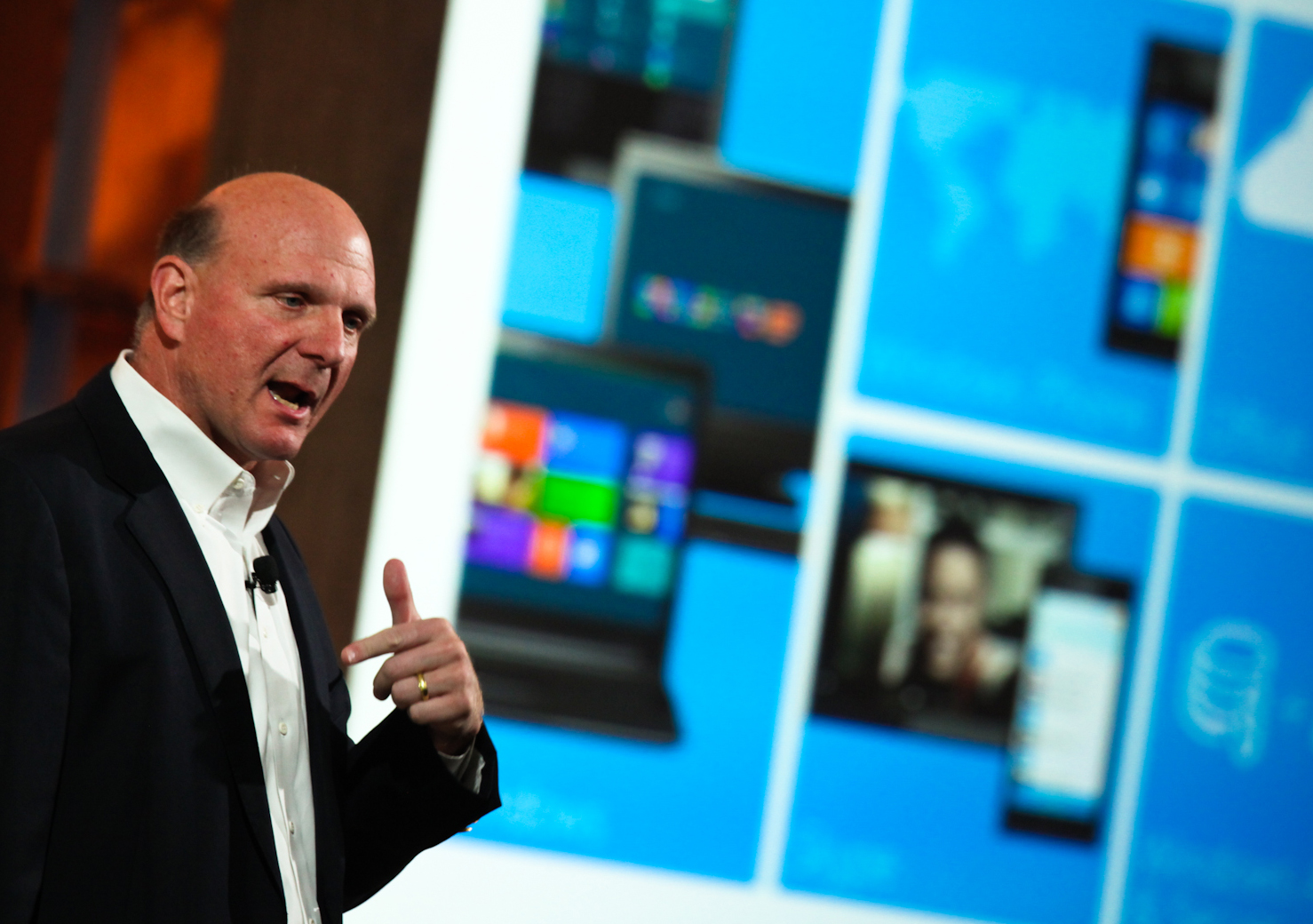
Steve Ballmer asks customers, partners and shareholders to believe in Microsoft
Today, Microsoft's CEO released his annual shareholder letter, which also is meant for customers, employees and partners. Steve Ballmer's looking back-peering ahead missive comes as the company stands on a precipice between the PC and cloud-connected device eras and seeks reinvention through an unusually strong late-year release cycle that includes Surface tablets, Windows 8, Windows RT and Windows Server 2012.
Under Bill Gates, Microsoft sought to put a PC on every desktop, with software innovation driving that effort. Ballmer describes post-PC Microsoft as a "devices and services company", which aptly describes the fundamental shift in progress. Services focus reminds of IBM, which dominated the mainframe era the PC displaced. This devices and services ambition "impacts how we run the company, how we develop new experiences, and how we take products to market for both consumers and businesses".
